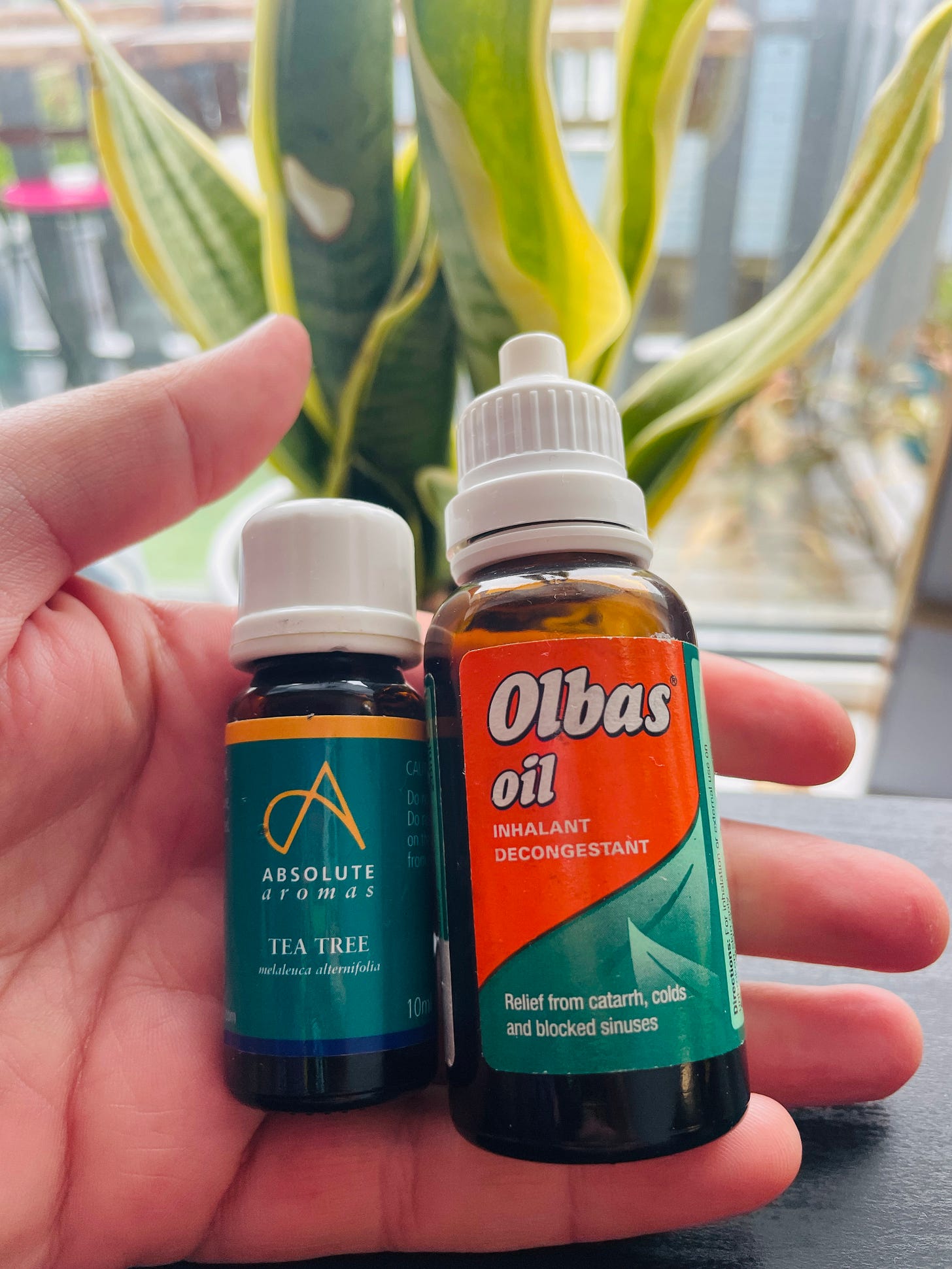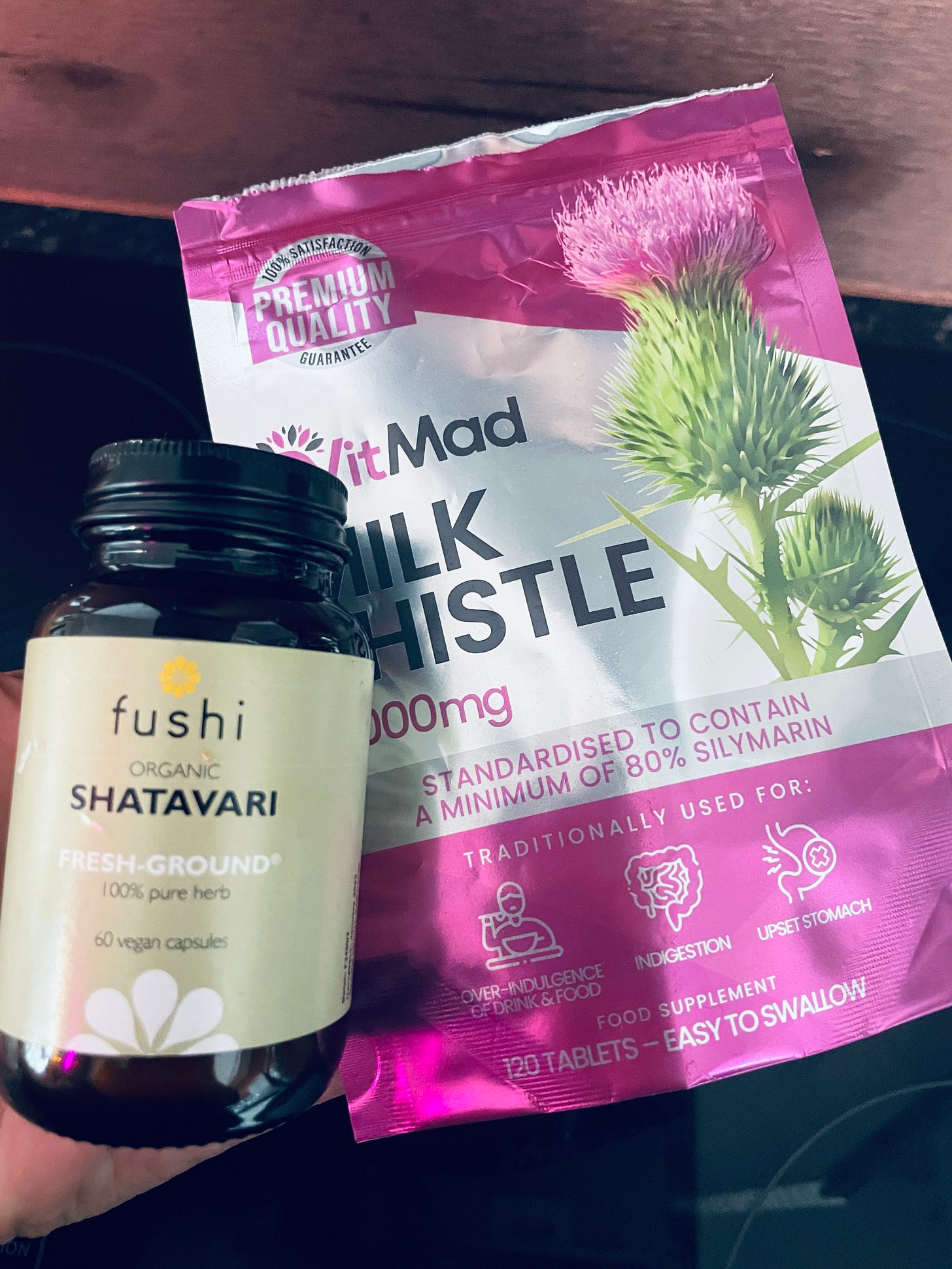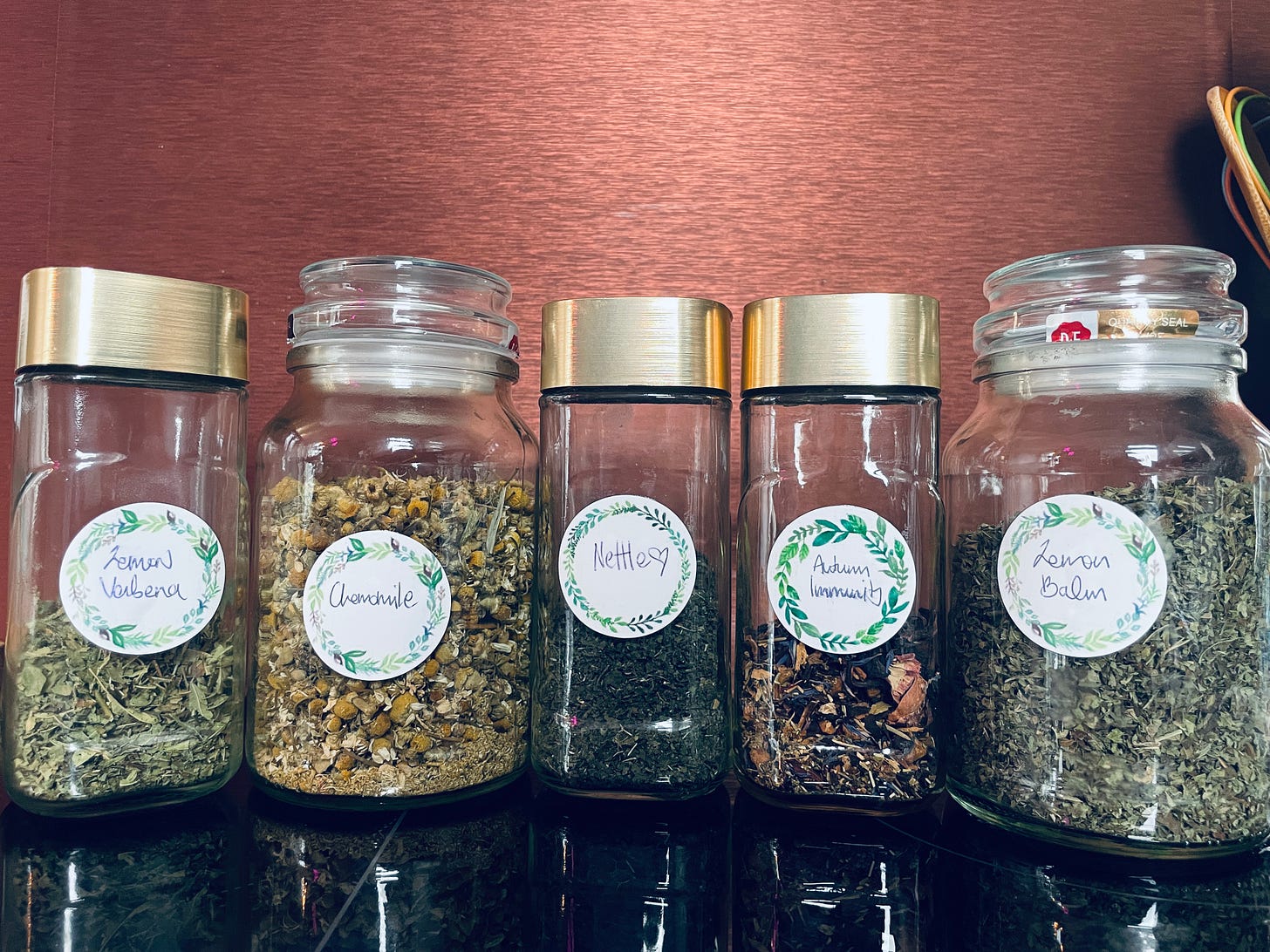Peek inside my natural medicine cabinet
These are the herbs and natural supplements I can’t live without
One could say I’m a bit of a rebel. Not that I am particularly transgressive, but I’ve always questioned authority and veered away from the norm. I think my love for holistic medicine is strongly born of that rebellion.
I was raised in a home where there was a pharmaceutical panacea readily available for every possible ailment and where the GP’s word was law.
Early in life I also suffered with some chronic health issues that went undiagnosed for a significant time. Even as a small child, I questioned why I needed to be in so much pain. Why they couldn’t fix me. And as I grew older and the family pharmaceutical cabinet continued to swell, I noticed (albeit passively) how reliant we all seemed to be on these chemicals which often just asked for us to keep taking more and more…
The first plant-based medicine that I connected with was Tea Tree. In typical teen rebel fashion, I had accumulated a substantial number of body piercings that required care. I found that a lot of the solutions recommended to me weren’t especially good and so I went digging and found my way to Tea Tree Oil. I was soon captivated by this potent antibacterial, antifungal, and anti-inflammatory oil with the distinctive zingy scent. I was blown away by how effortlessly it helped me soothe bites, stings and rashes, care for pimples and piercings, kill fungus and give just about anything an antibacterial cleanse.
Soon I was curiously browsing the (limited) natural remedies hidden between the pharmaceuticals in the drugstores considering what other wonders may lie in their midst.
During my University years, I struggled with stress and started experimenting with St John’s Wort and Ginseng. It took far too long for me to discover Milk Thistle and finally get relief from those ungodly student hangovers.
Later in my 20’s I met my (now) husband and his amazing mother, which is when I really began to turn towards natural medicine. It wasn’t that my mom-in-law was especially big on herbs. It was more that she encouraged me to question what I believed about western medicine. Every time I took a painkiller for a mild headache – something that was ingrained from my own family – she (and my husband) would gently interrogate my intention. We’d talk for hours and she would educate me on the amazing ways that nutrition alone can heal and support our ailing bodies.
At the time I didn’t realise it, but these conversations and the questioning they encouraged were really the start of my journey to listening to my body and turning away from the societal and my familial assumptions that ‘there is only one way’.
It was during this same time that my immediate family were dealing with some significant health issues and had to rely heavily on doctors and pharmaceuticals. Watching them struggle, I once again started to wonder if perhaps the care they were receiving was causing more damage than good.
As my life became more stressful, I started to develop my own set of chronic health issues. But this time I decided to broaden my scope of care to naturapathy and other holistic modalities like reiki, osteopathy, kinesiology and Transcendental Meditation.
Along the way I was introduced to even more natural medicines that have become like special friends to me over time.
Now, almost 20 years later, I have my own little herbal apothecary of sorts. I am an amateur herbalist at best and always try to do my homework before introducing anything new. Because, contrary to popular belief natural medicines can be incredibly potent.
Without education, it’s easy to take something that either doesn’t agree with you or a dosage that could be dangerous.
I don’t exclusively rely on holistic and herbal medicines, but I do try to lean on them for most of my day to day needs. As of today, I am grateful to be in overall good health, which means that I don’t need to rely on other pharmaceutical drugs that could negatively contradict my herbs.
If the need arises to go to the GP and take pharmaceuticals I do my research and make an informed decision about how to proceed.
My favourite everyday medicine is tea. Many herbs do their best work in tea form, and I find the ritual of daily tea-drinking to be a peaceful and intentional practice that adds to my overall wellbeing. I love that every tea has its own unique magic but that they can also be blended to combine or even enhance their amazing benefits.
Every year of my life, my appreciation and respect for natural medicine grows. As I learn to live more seasonally in the Northern hemisphere, I am continually reminded of nature’s incredible generosity and wisdom.
There are examples of it everywhere if you simply pay attention.
In Spring when all the flowers bloom and allergies become prevalent, the stinging nettles arrive in abundance at exactly same time. They are rooted beside the wildflowers – the remedy right next to the cause of the ailment.
So many of nature’s most potent medicines are right in front of our doorsteps, completely overlooked and even branded as ‘weeds’.
The most famous ‘weed’, the Dandelion plant is medicinally relevant from root to flower - packed with life-giving nutrients, can support urinary tract health and digestive health and are full of antioxidants.
I hope to study herbalism one day so that I can fully appreciate all the aspects of nature’s medicines and help others to use them wisely but until that time, I love to learn more through fantastic publications like
& on Substack.So, what’s in my natural medicine cabinet?
Allergies:
Stinging Nettle, Ginger
There are more but these are the ones I have tried. Best used as a tea.
Antibacterial:
Tea Tree
My old faithful. Make sure to dilute. Never use on open cuts or sores. Never ingest.
Anxiety/ Depression:
Passionflower, Valerian, St John’s Wort, Lemon Balm (tea), Ashwaganda, Lemon Verbena
So many beautiful options to support the mood. I tend to suggest people try one for a while and see if they vibe with it. My personal favourite is Passionflower for anxiety and as an everyday mood booster, Lemon Balm tea.
Digestion:
Slippery elm, Chamomile (tea), Lemon & ginger (tea), Lemon Verbena
Slippery elm saved me. For those dealing with chronic GERD, swap your Omeprazole for this.
For day-to-day digestive calming, I find chamomile tea best but sometimes add some sliced or grated ginger if needed.
Hormones:
Shatavari, Red raspberry leaf
For women, everyone is dealing with quite different things depending on where they are in their cycle or life as well as their overall reproductive health. Personally, I recently started taking Shatavari and have found it to be a lovely balancer. I feel energised and have less PMS symptoms.
Hangover:
Milk Thistle
She is the GOAT. Take it before you go out and again in the morning. Better than any weird concoction on the internet.
Infection:
Oregano Oil
Did you know that tasty little herb you put in your pasta is actually a powerful antibiotic?! Do your homework before using this as it can be incredibly potent.
Immunity & Colds
Nettles, Lemon Verbena, Echinacea, Elderberry
I’ve had some nasty bugs in the last couple years and so I’ve worked a lot with these ones. The key is to be consistent with them and to start as soon as you begin feeling unwell.
One of my new faves is to make a nettle and lemon verbena tea mixed with elderberry juice – tasty and powerful.
For sinus congestion and coughs, you can’t beat the classic Olbas Oil with Eucalyptus.
Pain:
Arnica, Cannabis, CBD
Arnica is great for muscle pain & bruising and can be used as a cream.
Cannabis and CBD can help with a variety of pain. For serious pain, I still tend rely on pharmaceuticals so always open to new ideas!
Sleep:
Valerian, Cannabis/ CBD
I’m grateful to sleep well for the most part, so can’t speak to insomnia, but these work well for me when I do struggle to sleep.
I hope you’ve enjoyed learning more about my journey with natural medicine. I’d love to know if you are dipping your toe in the herbal remedies pond or if you have your own favourites! Share a comment & let me know!








Hi my Angel, is Chocolate a herb? Asking for a friend.
What can I say, Shan... A wonderful and very inspiring read. Thank you so much for sharing your story of curiosity, self-awareness, bravery and growth.